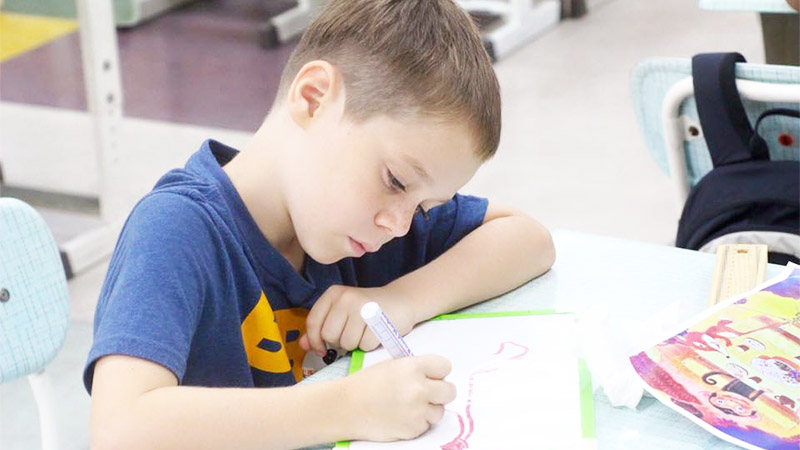When children ask for support with their homework, it can be difficult for parents to know how involved to get. Our natural instinct is to help – we want them to do well after all – but are we actually doing the right thing by our kids when we step in and correct them? Just how much support should we really offer? RUTH BENNY, founder of Top Schools, has some advice to share and some insight from Hong Kong Principals.
Why homework?
Let’s start by taking a look at the purpose of homework. Ideally, and certainly at Primary level, homework – or home learning as it is called in many schools – is largely intended to reinforce what has been taught previously in class. It’s an opportunity for students to put into practice the knowledge and skills they have learnt during the week and to try and cement them.
With that in mind, and given that most parents haven’t spent more than a few minutes inside a classroom for the last 20 or 30 years or more, it can be tricky to provide our kids with the answers they’re looking for. Teaching methods have changed drastically over the years, and it’s important that your child uses the latest techniques. If you’re not familiar with how the curriculum is taught, you’ll more than likely just confuse matters by trying to explain things with ‘old’ thinking.
Sometimes, assignments may go beyond what has been covered at school. Students can be asked to research a particular topic or to prepare for an upcoming lesson. This form of homework is common for older students and is a great way of helping them develop their research, reasoning and evaluation skills.
Younger kids can benefit from preparatory or research homework as well, and it can be a great way to get children excited about learning – if they’re interested in a topic, and if they’re driving the research themselves, they’re more likely to stick with it and learn more as a result.

A positive homework environment
According to the pedagogy directors in the international stream at French International School (FIS), one of the most important things parents can do to support their child’s home learning is provide a comfortable space for them to study in.
Timing is important too and is very much dependent on the individual. Some children need a break after a full day at school and may work more effectively after having dinner. Meanwhile, others are better to carry on studying while they are ‘in the zone’. Either way, turn the TV off, reduce distractions, and get buy-in from your child. If you can set expectations up front and get them to agree to the schedule, you’ll minimise any struggles. Don’t try and cram a whole week’s work into one evening though – remember that all children need regular breaks, no matter what age they are.
A helping hand?
One of the biggest traps parents fall into is hovering over their child as they do their homework and jumping in to help them get every answer correct. While your child may enjoy getting full marks, it won’t be good for their learning in the long run. This behaviour can give them false confidence in their abilities. It also makes it harder for teachers to assess how well a student understands a subject.
The advice from FIS: “The key is to guide your child towards finding answers to their questions rather than answering for them. For younger children, give them clues or prompts. Check answers, and if they are wrong, point them in the right direction. It is fine to fail. Being there to listen and guide strengthens the parent-child relationship, but merely answering the question for them keeps them dependent on you.”
Mr Ben Keeling, principal of Shrewsbury International School Hong Kong, adds, “Aim for engagement, not leadership. It can be tempting to take over, particularly when you see standards falling. However, a large part of the opportunity presented requires the student to embrace personal responsibility, for better or worse.
“On the occasion that your child can’t access the task, or simply doesn’t understand what to do, support where you can (annotating guidance given wherever possible) and make contact with the school directly.”
“Parents should not complete homework for their child,” adds the FIS team. “It deprives them of the challenge, or struggle, that we all need for deep learning and sends the wrong message in terms of being responsible for their own actions.”

Skills for the future
In addition to developing a sense of responsibility, tackling homework helps students gain several key skills. All of these are important for further studies and adult life. They include independence, organisational abilities and being able to work to deadlines. It also helps to develop a strong work ethic from a young age.
And as students get older, homework becomes more and more important in supporting academic achievements. “At Secondary level, the debate is not whether we should give homework or not, it’s about making sure that it reinforces learning. It’s about quality rather than quantity,” explains the team at FIS.
Of course, with some students, homework is never going to be popular. It is, however, a fact of life, which is where we as parents come in. It’s our job to help our child see home learning in a positive light. “A demonstration of sincere interest in (and celebration of) the tasks undertaken can work wonders,” shares Mr Keeling.
It’s sage advice. By motivating our children and getting them into a positive routine, we help them take ownership of their work. Always remember: it’s their homework, not yours. Support, advise and give praise, but leave the teaching to the teachers.
Find out more about Ruth Benny and Top Schools here: topschools.com.hk.
See more in our Schools section:
Bumper guide to international schools in Hong Kong
The British Curriculum and introducing Shrewsbury School (PODCAST)
‘What’s the best school in Hong Kong?’





